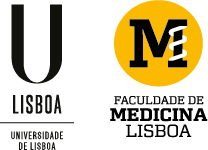The Laboratory Medicine subject is integrated into the Medicine-Surgery Curricular Units of the 4th and 5th year of the MIM, and its teaching structure is organized into theoretical and theoretical-practical classes.
It aims to familiarize students with the main areas of Laboratory Medicine (Haematology, Clinical Chemistry, Immunology and Molecular Biology) and with the medical specialty of Clinical Pathology. The main laboratory methods used in these different areas in Clinical Laboratories are covered. In addition to this more laboratory-based perspective, there is a strong focus on the application of laboratory tests in various clinical situations. In the 4th year, laboratory assessment in Hematology (anemia, hemostasis, hemato-oncology) is highlighted, as well as laboratory assessment of cardiovascular diseases and the role of the Clinical Laboratory in the Emergency Department. In the 5th year, in addition to molecular methods in Laboratory Medicine, the laboratory assessment of kidney function, liver function and endocrine diseases is emphasized, as well as the importance of biomarkers in the diagnosis and monitoring of oncological diseases and the laboratory study of autoimmune diseases and the serology of infectious diseases. In all these areas, the student is expected to understand the diagnostic value of laboratory tests, and to know how to apply and interpret these tests, according to their performance characteristics, namely diagnostic sensitivity and specificity and predictive values.
The autonomous disciplinary area of Laboratory Medicine has a teaching staff made up of Clinical Pathologists from the Clinical Pathology Departments of Centro Hospitalar Universitário de Lisboa Norte (CHULN) and Centro Hospitalar Universitário de Lisboa Central (CHULC), who promote regular scientific activity, based on the collaboration with clinical-laboratory research projects.



